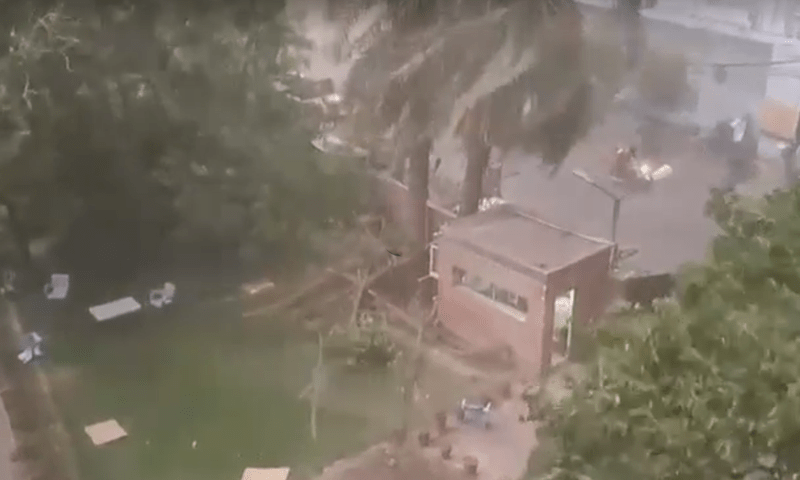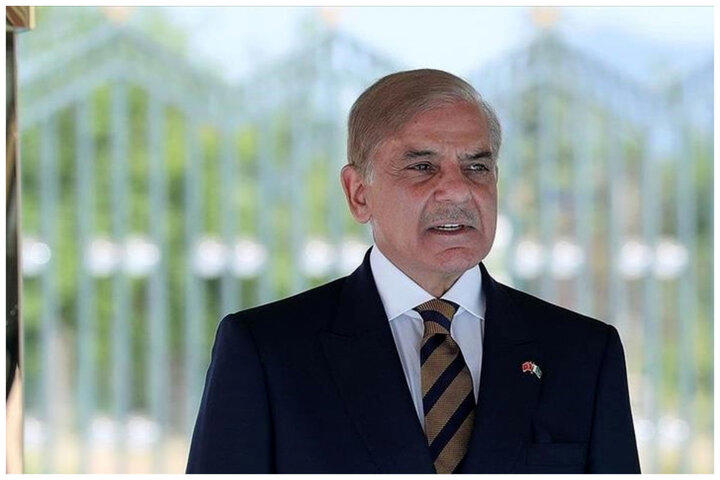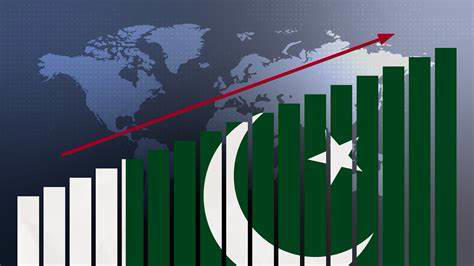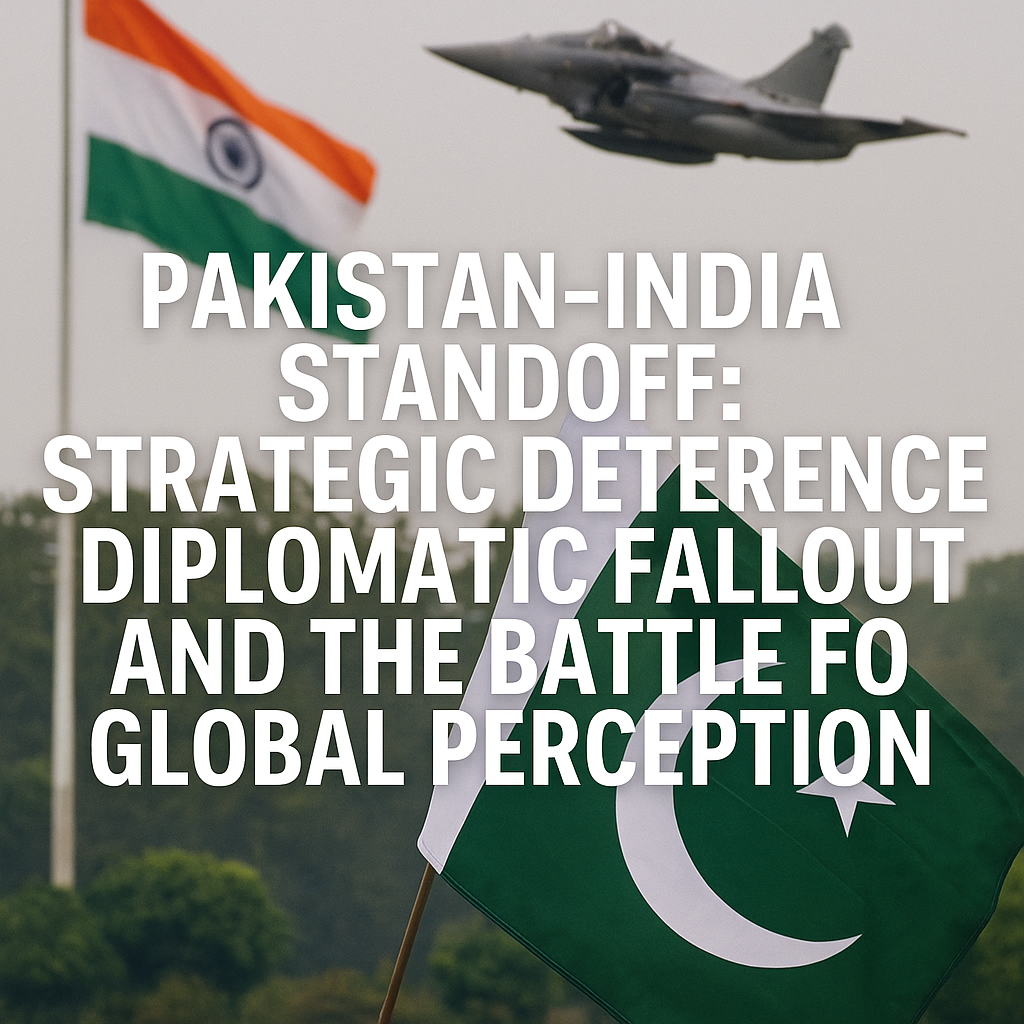Cryptocurrency has captured the imagination of many around the world, and Pakistan is no exception. However, a sort of crypto bug seems to have bitten the government recently — raising eyebrows both domestically and internationally. While some level of interest in crypto is understandable, the line between crypto as a political tool and crypto as a serious business proposition is critical to keep in mind. The stakes are high, because public resources are on the line.
In a significant legal reversal, Pakistan’s Supreme Court has reinstated the military’s authority to try civilians, overturning its own 2023 decision that had deemed such trials unconstitutional. This move has sparked widespread concern among human rights advocates and legal experts, who view it as a regression in the country’s commitment to civil liberties and judicial independence. The decision revives a controversial law from the era of former military ruler Ayub Khan, raising questions about the future of civilian justice in Pakistan.
“Pakistan is making its biggest economic pivot since independence – betting its future on blockchain. With a new Crypto Council chaired by the Finance Minister, 2000MW allocated for mining, and advisors like Binance’s CZ, the nation aims to transform from a cash-based economy to a digital asset hub. The shock partnership with Trump-backed World Liberty Financial signals Pakistan’s serious intent to attract global crypto capital. But can this high-risk, high-reward strategy overcome energy shortages and regulatory hurdles? One thing’s clear: after decades of financial isolation, Pakistan is ready to mine its way into the Web3 revolution.”
“Abdul Latif Baloch died as he lived—resisting. The journalist and Levies force member was gunned down in his own home after fighting back against kidnappers in Balochistan, the same region where his son’s body was found years earlier. His killing marks the 12th journalist murdered in Pakistan this year, exposing the deadly cost of truth-telling in a province where press freedom is under siege. As media unions demand justice, a harrowing question lingers: How many more voices must be silenced before the world acts? Baloch’s pen may be broken, but his story screams for accountability.”
“Pakistan is done playing nice. After 5,000 citizens were deported for begging in Saudi Arabia—and hundreds more from Europe—the government has unleashed a draconian response: immediate passport cancellations, criminal FIRs, and a 5-year travel ban. Interior Minister Mohsin Naqvi called it ‘national shame rectification,’ but critics warn this punishes the poor twice. With viral videos exposing begging syndicates funding luxury lifestyles, the crackdown reveals a deeper truth: Pakistan would rather blacklist its own than let them ‘disgrace’ the country again. The message? Break laws abroad, lose your rights at home.”
In just a few terrifying hours, Punjab’s skies turned lethal. With winds strong enough to collapse factories and rains that drowned motorways, the storm claimed 8 lives and left 45 fighting for survival. While rescue teams scramble through rubble, shocking questions emerge: Why were so many homes still dangerously dilapidated? Could early warnings have saved lives? From Jhelum’s tragedy to Lahore’s blackouts, this is the raw account of a province brought to its knees—and the desperate race to prevent more deaths as another storm looms.
“Rahul Gandhi dropped a political bombshell—claiming India warned Pakistan before launching Operation Sindoor strikes. But Pakistan’s military just hit back with a brutal reality check, calling it a ‘comical narrative.’ With India dismissing Gandhi’s evidence as ‘fake’ and tensions soaring, this high-stakes blame game exposes the fragile trust between the nuclear rivals. Was this a diplomatic slip-up or deliberate misinformation? One thing’s clear: the truth is the first casualty in the India-Pakistan propaganda war.”
“A morning school run turned into a nightmare when a suicide bomber struck a bus carrying children in Khuzdar, leaving six dead and dozens injured. As grieving families demand answers, Pakistan’s prime minister and army chief made an urgent trip to Quetta – but their accusations against India have sparked an international firestorm. This attack not only revives painful memories of Peshawar’s school massacre but exposes the raw nerves of Balochistan’s insurgency. With victims still fighting for their lives, one question haunts the nation: Will this tragedy finally change Pakistan’s security calculus?”
“Pakistan has officially crossed the $400 billion GDP mark—a historic first. But with growth lagging behind targets and sectors like agriculture struggling, is this milestone a cause for celebration or a wake-up call? While rising per capita income and industrial expansion signal progress, challenges like climate risks and policy gaps loom large. Dive into what this economic turning point means for businesses, citizens, and Pakistan’s global standing. The real question: Will this momentum last?”
In the recent military standoff between India and Pakistan, the region was once again on the brink of a full-blown war. While New Delhi sought to reshape the strategic landscape in its favor, Islamabad’s measured yet forceful kinetic response not only thwarted India’s escalation plans but also re-established Pakistan’s conventional deterrence as a credible force under the nuclear overhang. The standoff sent a clear message: Pakistan will respond decisively if provoked, and the costs for India could outweigh the gains in any future conflict.









